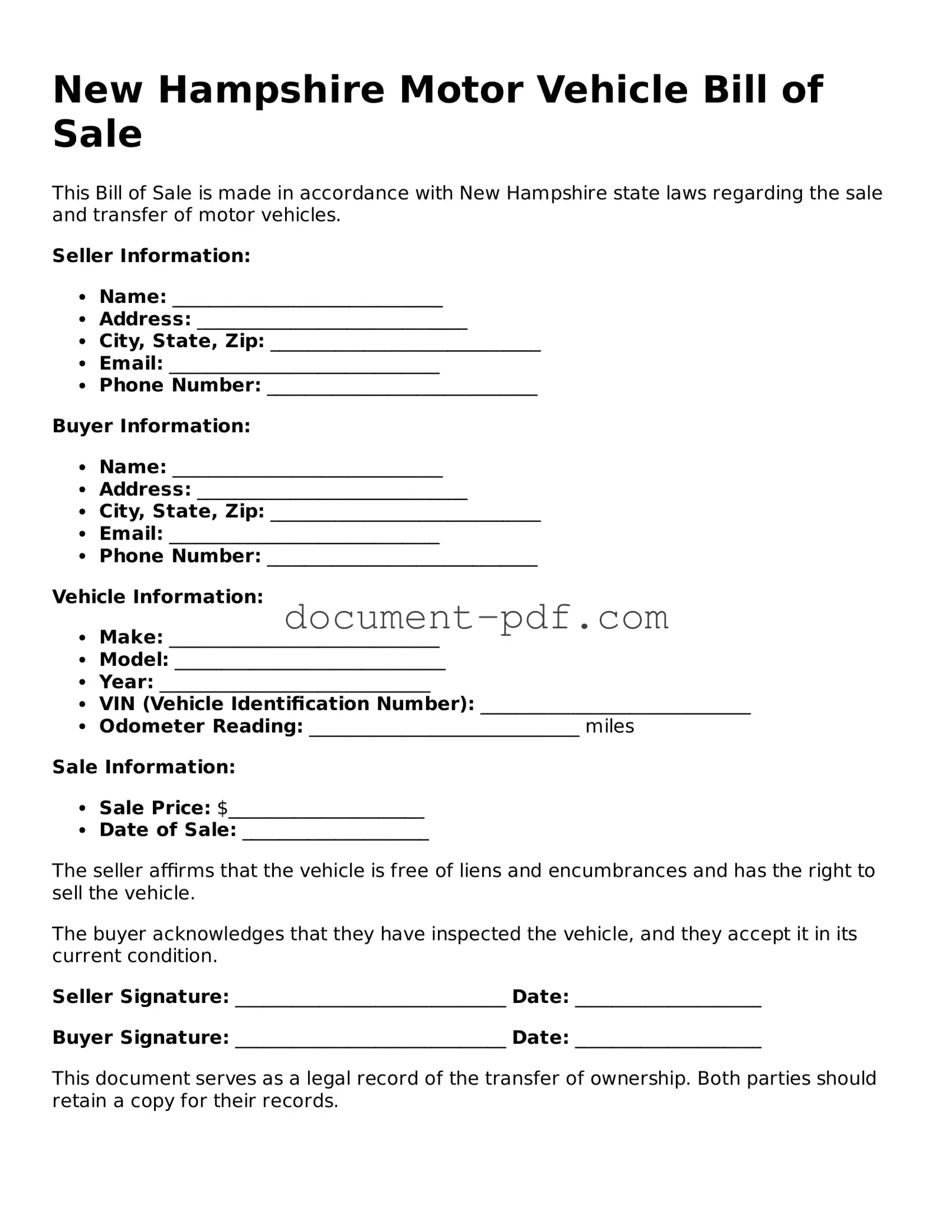Attorney-Verified New Hampshire Motor Vehicle Bill of Sale Template
The New Hampshire Motor Vehicle Bill of Sale form is a crucial document that serves as a record of the sale and transfer of ownership for a motor vehicle. This form outlines important details such as the vehicle's make, model, and identification number, as well as the buyer and seller's information. If you're ready to complete your vehicle transaction, fill out the form by clicking the button below.
Access Motor Vehicle Bill of Sale Editor Here

Attorney-Verified New Hampshire Motor Vehicle Bill of Sale Template
Access Motor Vehicle Bill of Sale Editor Here
Finish the form without slowing down
Edit your Motor Vehicle Bill of Sale online and download the finished file.
Access Motor Vehicle Bill of Sale Editor Here
or
Click for PDF Form
